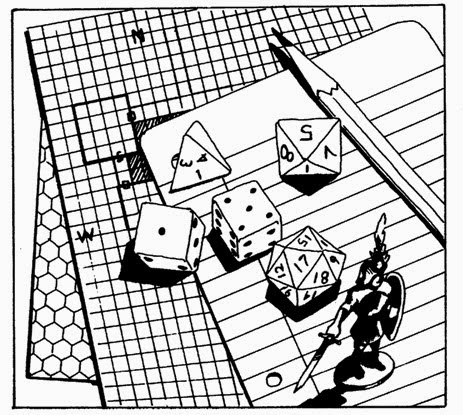I like to spend some of my free time (what there is of it) browsing through game systems rule books and adventures. It helps to keep the creativity flowing and always turns up some interesting ideas. But one thing I've noticed, especially from independently produced products, is that they tend to change the names of things just for the sake of changing them. Especially when it comes to character attributes.
For example, it's important to know how Strong a character is, so Strength is a good word to represent that. However, I've seen Strength, Power, Prowess, Muscles, Physique etc.
Another popular example is how smart a character is: Intelligence, Intellect, Knowledge, Education, Reason, Smarts, Insight etc, etc, etc.
 I look at these and I start to wonder if we're really re-inventing the wheel by calling them different things if we're really referring to the same attribute. Is it confusing to gamers to have to remember what a specific game calls its version of Strength so do they just fall back into the D&D vernacular and eventually just call "Muscles" Strength because it's what most gamers are familiar with.
I look at these and I start to wonder if we're really re-inventing the wheel by calling them different things if we're really referring to the same attribute. Is it confusing to gamers to have to remember what a specific game calls its version of Strength so do they just fall back into the D&D vernacular and eventually just call "Muscles" Strength because it's what most gamers are familiar with.
But then again, I think it's your game, you should make it stand out from the crowd and try to make it unique and not just ride the coat tails of those that came before you.
I myself have some old-school attributes to keep things simple and familiar, and some new ones to better represent my vision and a specified area the attribute is covering.
I use:
Strength - Physical power, muscles
Endurance - Physical toughness and durability
Dexterity - Manual dexterity, ability to manipulate things with the hands
Agility - Physical agility and reflexes
Speed - How fast he can move and react
Intellect - Intelligence, capacity for understanding
Perception - Awareness and capacity for recognition
Will Power - Mental toughness and durability
Affinity - Penchant for all things aesthetic and pleasing including personal interaction
I look at it and think "Well, couldn't I just call Intellect, Intelligence?", "Doesn't Health really mean Constitution?" It would certainly make things more familiar for gamers, but at the same time I don't want to make a D&D clone. And a couple of them are clearly different that what other (read: D&D) games use or are trying to derive from their characters.
I feel like a hypocrite reading some games and mentally criticizing them for not using generally accepted terms for what the obviously mean to represent D&D-like attributes while I myself do the same thing.
Any opinions?
Anyone out there?
Bueller?


No comments:
Post a Comment
Note: Only a member of this blog may post a comment.